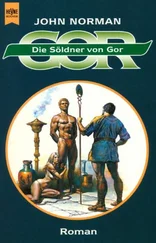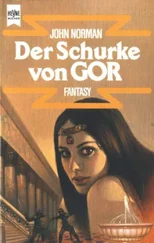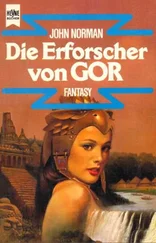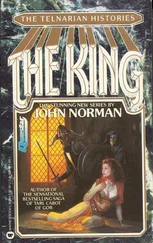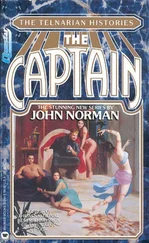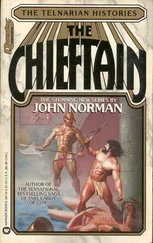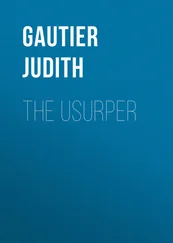She did not understand the likely repercussions and consequences of her task, but she gathered it was important.
It had to do with politics, and power, and perhaps even with the fate of an empire.
She knew the empire was eternal, but there were rumors, far off, of crumbling walls, of crossed borders, of lapsed, lost, or surrendered worlds, of transgressed spacelanes, of remote smithies in which alien ships, in their hundreds, were being built and fueled.
Who, or what, might stand against the darkness, like night, rising over far worlds?
What forces, what men, in a thousand effete worlds, devoted to luxury and pleasure, might be strong enough to stand against storms of hungry wolves, their eyes burning in the night, now prowling just beyond watch fires of civilization?
She knew her task.
That was enough.
Its implications were for others to assess.
We have little reason to suppose that she knew, or much cared, what might ride on the stroke of a tiny blade, and a drop of poison.
The empire was eternal.
At that moment, a gong sounded, and she rose to her feet, turned, and hurried to the kitchen.
It would not do to dally.
The brunette, the first girl, carried a switch.
“We are surely lost,” said Tuvo Ausonius.
“No,” said Julian, he of the Aureliani, kin even to the emperor.
“The snow has concealed the tracks of the tractor sleds, of the expedition trying to make contact with Captain Ottonius,” said Tuvo.
“I am not now concerned with the tracks,” said Julian. “In Venitzia, I determined the route of the expedition. The sky is unfamiliar, but I am using the appropriate star sighting.”
“That is why we have moved primarily at night,” said Ausonius, “after the snow.”
“Yes,” said Julian.
I gather from the manuscript that Tangara lacked a magnetic pole.
“How close is the forest?” said Tuvo.
“I do not know,” said Julian. “I hope it is not far. There may be little time.”
It may be recalled that Otto, now king of the Otungs, to the consternation of many, had left Venitzia alone to make contact with the Otungs, even though it was the Killing Time. This had been in direct contradiction to the clearly expressed, urgent wishes of Julian whose departure from Lisle had been delayed, quite possibly deliberately, that he wait in Venitzia before proceeding. Julian fully expected that he would do so. But he had left, alone. Before the arrival of Julian in Venitzia, an expedition had been hastily organized to follow and, presumably, support Otto, an expedition, as far as we know, nominally under the command of Phidias, captain of the Narcona . Julian, being apprised of these matters, once he had arrived in Venitzia, had set forth almost immediately with his aide, Tuvo Ausonius, and a slave, Nika, on the trail of the expedition. It was not a coincidence that the lovely young slave was in his party. Two strands of evidence had been intertwined in such a way as to excite the apprehension of Julian; on the quay at Lisle he had been troubled by an unusual group of slaves being prepared for shipment to Tangara. Surprisingly, none were branded. In particular, he was disturbed by one slave, whose behavior seemed anomalous for that of a slave. Furthermore, he had the sense that she was familiar. Could it be that he might have seen her somewhere before, perhaps in a plaza, a theater, a market, perhaps at an entertainment, a reception, or ball? Curious he had made inquiries and found that the slave’s supposed background and antecedents were spurious. He had then had, from memory, a drawing, colored, prepared. A number of inquiries, conducted largely by Tuvo Ausonius, with the drawing in hand, at local slave houses, and slave-holding facilities, proved unilluminating. This drawing, however, was later interpreted by a number of free persons, particularly those of note and station in Lisle, as possibly being a likeness of the disreputable, notorious Lady Publennia Calasalia, putatively of the Larial Calasalii. The second strand of evidence was woven into the cord of suspicion when it was discovered that she was no longer in the city. Her personal slave, Nika, was seized, and, confused, took her captors for being those who, or enleagued with those who, had expressed an interest in her Mistress, presumably wishing to utilize her in some project or other. As a slave, or pretended slave, would be an unlikely spy, given her supervision and the restrictions on her movements, Julian had surmised her role, if role she had, would be something other than espionage. And who but a slave would be likely to be alone, wholly alone, with a Master, fondled and unsuspected, in the warmth and darkness of a night?
“Behind these rocks!” hissed Julian.
“Master?” said Nika.
“Silence,” whispered Julian.
Tuvo Ausonius, aide to Julian, drew Nika by her harness, fastened to the sled, behind the rocky outcropping, the sled half turning in the snow. He then pushed her down, to her knees in the snow.
“They can follow the sled tracks,” said Tuvo Ausonius.
“I do not think they have seen the tracks,” said Julian. “I do not think they are aware of our presence.”
“Bells,” said Tuvo Ausonius.
“Sled bells,” said Julian.
“Who would dare mount bells on a sled here, in this region?” asked Tuvo Ausonius.
“Those without fear, in what they take to be their own country,” said Julian, “Heruls.”
“Men?” said Tuvo.
“I think not,” said Julian, “but manlike, a rational species, with the common symmetries, found on many worlds, a pairing of limbs, a pairing of certain organs, and such. They are aggressive and territorial. They are warlike and dangerous. They commonly kill male humans but capture and enslave human females, whom they enjoy or sell.”
“Are they cross-fertile with them?” asked Tuvo.
“No,” said Julian, “but that does not preclude pleasuring themselves with them, no more than certain humans, interestingly, derive pleasure from lower animals. They do occasionally keep a healthy, stalwart male slave, chained by the neck in a hut, to whom a number of selected female slaves, hooded, are brought for impregnation. The females are treated in such a manner, by means of a drug obtained in trade, that the offspring are invariably female. In this way more female slaves are obtained, most of whom will be sold as children to slave farms.”
“I see,” said Tuvo.
“Heruls differ from humans in a variety of ways,” said Julian, “physiologically, and, certainly, culturally. For example, they are occasionally cannibalistic, and frequently, within their own group, kill the old and weak.”
“The bells grow louder,” said Tuvo, whispering.
“You hear the snorting of the horses, and the scratching of their claws in the hard snow, too,” said Julian.
“Yes,” said Tuvo.
In my editing of the manuscripts, I frequently speak of diverse animals in terms of a familiar nomenclature, for example, I might speak of horses, pigs, dogs, and such. I do the same here. I think this is easiest, on the whole, as the animals in question occupy similar ecological niches. I suppose I could, accordingly, also, call the Heruls men, but, on the whole, it seemed to me best not to do so. In such matters one craves the reader’s patience, and indulgence.
“They are close,” said Tuvo.
“I fear they are stopping,” said Julian.
“They have seen us, or the tracks?” said Tuvo.
“I do not know,” said Julian.
Nika, even in her furs, shuddered.
Julian unslung his rifle, as did Tuvo.
Great pains are taken by the empire to keep rifles, and other formidable weapons, out of the hands of such species as the Heruls, and such tribes and communities as the Otungs, the Wolfungs, and such.
Читать дальше

